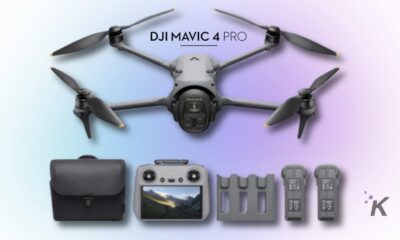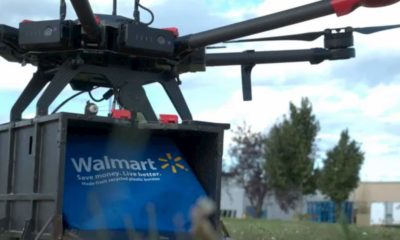#DroneTechie
Everyone you know is purchasing (or has already purchased) a license-scanning camera
Everybody is spying on everybody.

Just a heads up, if you buy something through our links, we may get a small share of the sale. It’s one of the ways we keep the lights on here. Click here for more.
As anyone who has owned a computer or smartphone in the past decade already knows, we are being spied on constantly. Apple? Spying on you. Facetime? Spying on you. Your neighbor Garth who you gave you $300 to quote “never close your curtains again?” Spying on you.
And now, it looks like even your creepy neighbors are spying on you, or at least, your car.
Yes, as the popularity of dashcams have boomed over the years, so have the use of automatic license plate readers, otherwise known as ALPRs.
While police departments have been using ALPRs for years (think all those red lights you’ve been ticketed for without being pulled over, or the dozens of Law & Order: SVU episodes where a perp was caught by a streetlight cam with the ability to “zoom and enhance”), a new wave of tech firms have made the genius decision to bring the technology to ordinary civilians. With zero government oversight. This is fine, everything is fine (via QZ):
At least one company, OpenALPR, offers software for free, on Github. Anyone who downloads it can turn a single web-connected camera into an automatic license plate reader that can monitor traffic across a four-lane highway with 99% accuracy. (Customers pay between $49 and $995 monthly for optional cloud-based storage and analysis.)
Cool cool, coolcoolcoolcoolcool. In less than two years, the number of cameras equipped with OpenALPR software has jumped from around 300 cameras to over 9,200, but I’m sure all these private citizens are simply using those cameras to make sure any local ruffians aren’t speeding in their quiet communities. I mean, there’s no way this kind of technology could be used for insidious or nefarious means, right?
Joseph Giacalone, a criminal justice professor at City University of New York, says it was only a matter of time before ALPRs were deployed for civilian use. “Any new technology comes with the promise of making our lives better, and making our jobs simpler,” says the former NYPD commander. “But they also come with a caveat—the potential for abuse: people stalking exes, making targets more accessible to criminals, and keeping tabs on your spouse.”
Neato, neato. It’s at this point that I should mention that, of the 16 states that actually have laws and/or defined principles regarding ALPR use and data retention, not a lot of them even have a way to enforce those laws, or even a way of explaining them to the people who do own cameras equipped with them. Says Dave Maass of the Electronic Frontier Foundation, “It’s possible not a lot of users realize this when trying out the software.”
So tl:dr, our privacy in even non-internet settings is eroding faster than a dune on the Holderness Coast. Move along, nothing to see here.
What do you think? Does this have you concerned? Let us know down below in the comments or carry the discussion over to our Twitter or Facebook.
Editors’ Recommendations:
- Walgreens is considering using targeted ads… on their freezers
- Google made a Chrome extension that tells you if your passwords were breached
- Facebook has been giving teens money in exchange for their data
- Did you know that your IoT light bulbs carry a hefty security risk?
- For some reason, LinkedIn is moving into live video territory
































